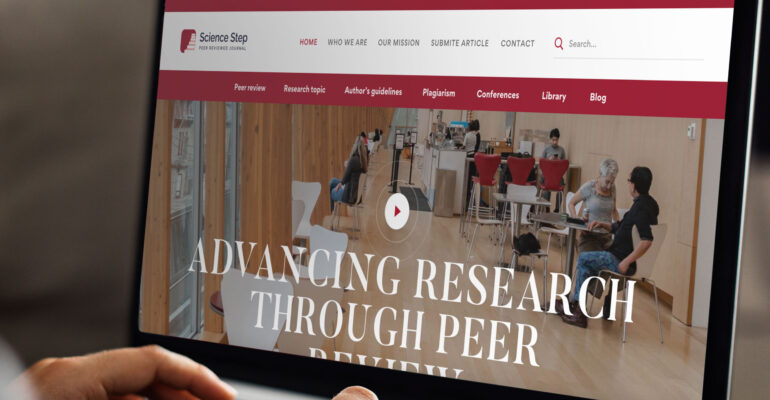Introducing a New Moroccan Peer Review Journal: Revolutionizing Academic Collaboration
17 June 2023 2023-07-19 1:41Introducing a New Moroccan Peer Review Journal: Revolutionizing Academic Collaboration

Introducing a New Moroccan Peer Review Journal: Revolutionizing Academic Collaboration
In the rapidly evolving realm of academic research and publishing, peer review serves as a vital mechanism for ensuring the quality and credibility of scholarly work. While established international platforms have traditionally dominated the peer review process, a new peer review website based in Morocco has emerged, promising to bring fresh innovation to academic collaboration both within the country and beyond. This article delves into the distinctive features, benefits, and potential impact of this groundbreaking platform.
The Birth of Science Step Journal
Motivated by a vision to foster academic excellence and enhance scientific discourse within the Moroccan research community, a group of forward-thinking individuals came together to establish a novel peer review website. Recognizing the need for a dedicated platform tailored to the unique needs and aspirations of Moroccan researchers, the founders embarked on a journey to create a user-friendly, dependable, and accessible website.
Key Features:
-
-
- Targeted Networking: The platform connects Moroccan researchers, promoting collaboration and interdisciplinary research within the local academic community.
- Multilingual Interface: With support for multiple languages, the website ensures inclusivity and facilitates engagement from researchers of diverse linguistic backgrounds.
- Streamlined Submission Process: Researchers can easily submit their work, benefiting from an intuitive submission system for efficient processing.
- Expert Peer Reviewers: Accomplished academics review manuscripts, providing valuable feedback to enhance the quality of research.
- Open Access Philosophy: The platform advocates for open access, making research accessible without financial barriers.
-
Benefits and Impact:
-
-
- Strengthening Local Research Community: The platform fosters collaboration, knowledge exchange, and research partnerships within the Moroccan academic community.
- Promoting Multidisciplinary Research: By connecting scholars from different fields, the platform encourages innovative thinking and novel approaches to problem-solving.
- Enhancing International Visibility: The platform facilitates engagement between Moroccan and international researchers, promoting cross-cultural understanding and positioning Morocco as an intellectual hub.
- Bridging Language Barriers: The multilingual interface promotes inclusivity, enabling researchers to publish and access content in their preferred language.
-
Prevalence was highest in pupils of black ethnicity (2.1%) and lowest in Roma/Irish Travellers (0.85%), with these estimates being the first to be published for these populations. Pupils with a record of autism in schools were 60% more likely to also be socially disadvantaged, and 36% less likely to speak English. The findings reveal significant differences in autism prevalence, as recorded in formal school systems, across ethnic groups and geographical location.
Conclusion: The new peer review website in Morocco revolutionizes academic collaboration by addressing the specific needs of Moroccan researchers. Through targeted networking, multilingual support, streamlined processes, and an open access philosophy, the platform strengthens the local research community, promotes multidisciplinary research, enhances international visibility, and bridges language barriers, positioning Morocco as a vibrant hub for scholarly discourse.
Related Posts
Search
Categories
Popular Tags
Popular tags



